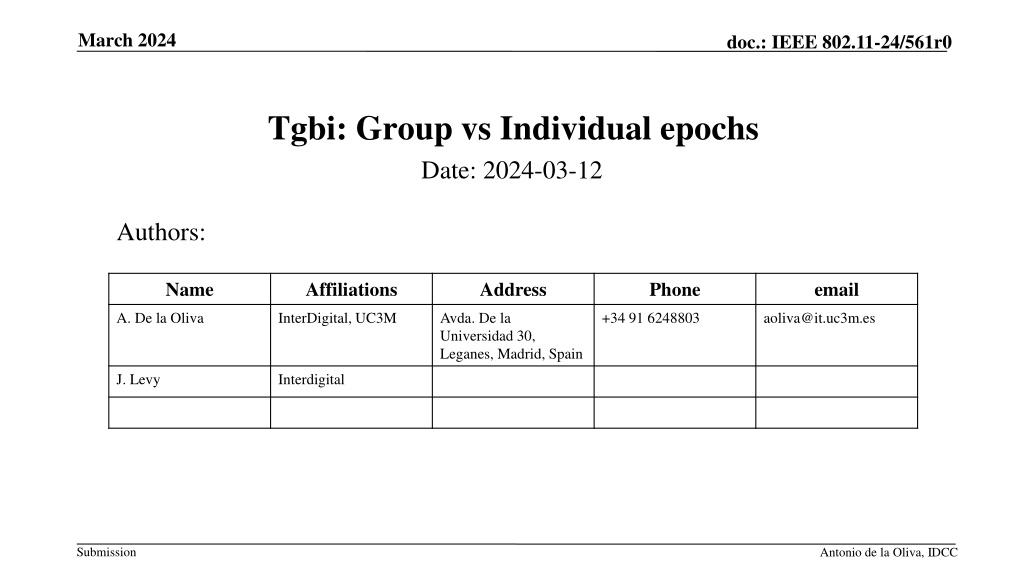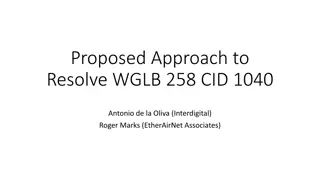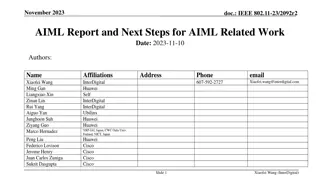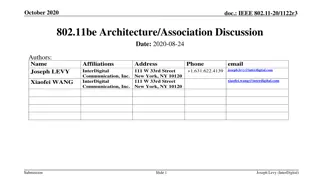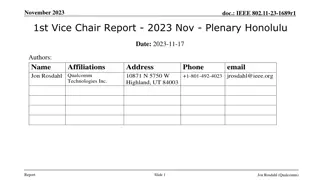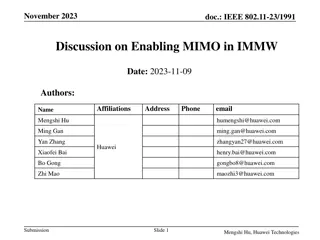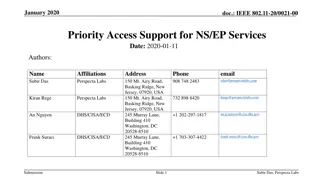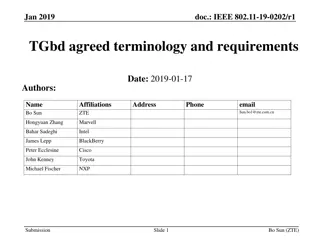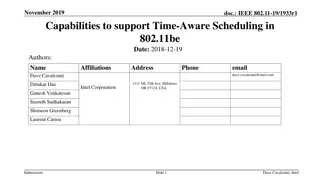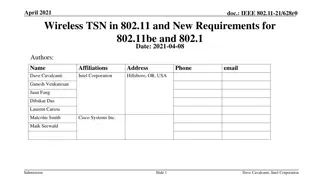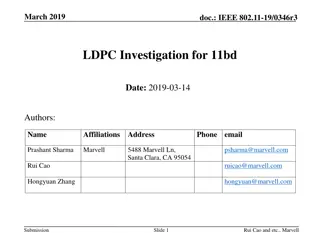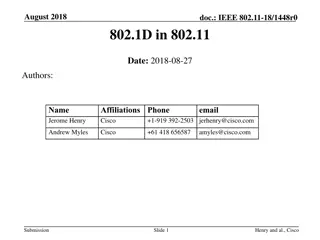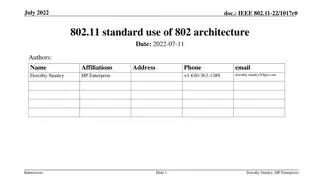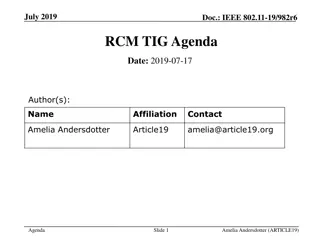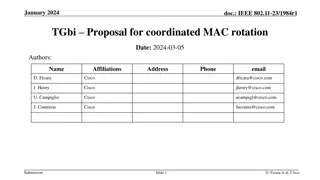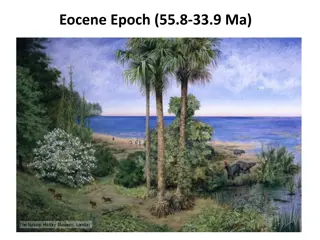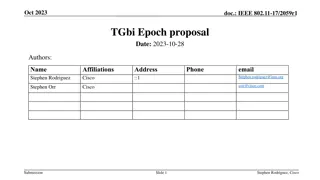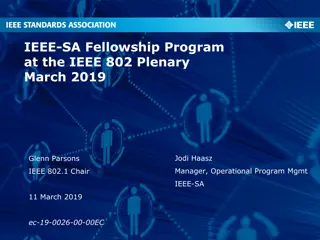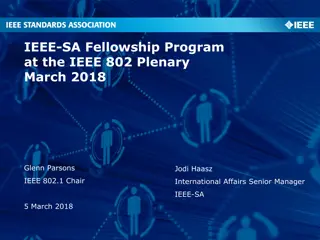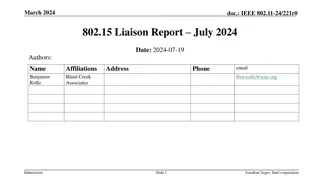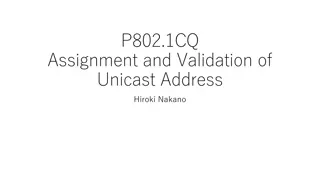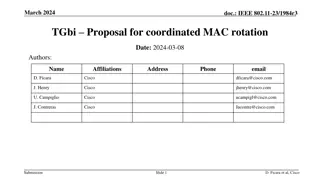Discussion on IEEE 802.11 Group vs. Individual Epochs
Trigger discussion on differences between group and individual epochs in IEEE 802.11 standards. Group epochs involve simultaneous transitions of MAC parameters by all or selected STAs based on AP trigger, while individual epochs allow each STA to independently change its parameters. Key points include negotiation processes, MAC address generation, epoch validity criteria, and implications of using multiple epochs. The focus is on achieving agreement and enhancing specification writing efficiency.
Download Presentation

Please find below an Image/Link to download the presentation.
The content on the website is provided AS IS for your information and personal use only. It may not be sold, licensed, or shared on other websites without obtaining consent from the author.If you encounter any issues during the download, it is possible that the publisher has removed the file from their server.
You are allowed to download the files provided on this website for personal or commercial use, subject to the condition that they are used lawfully. All files are the property of their respective owners.
The content on the website is provided AS IS for your information and personal use only. It may not be sold, licensed, or shared on other websites without obtaining consent from the author.
E N D
Presentation Transcript
March 2024 doc.: IEEE 802.11-24/561r0 Tgbi: Group vs Individual epochs Date: 2024-03-12 Authors: Name Affiliations Address Phone email A. De la Oliva InterDigital, UC3M Avda. De la Universidad 30, Leganes, Madrid, Spain +34 91 6248803 aoliva@it.uc3m.es J. Levy Interdigital Submission Antonio de la Oliva, IDCC
March 2024 doc.: IEEE 802.11-24/561r0 Scope Trigger discussion on the differences between group and individual epochs, to facilitate agreement and writing of specification Current IEEE 802.11bi/DXX has defined two types of epochs: Group epoch: all or selected STAs simultaneously transition their MAC+other parameters based on AP trigger Individual epoch: each STA transitions its MAC+other parameters simultaneously Submission Antonio de la Oliva, IDCC
March 2024 doc.: IEEE 802.11-24/561r0 Group epoch Main idea: hide in the group The AP and STA negotiates: Epoch duration Epoch starting time Others: e.g., AID offset, MAC address generation mechanism The Epoch is periodic with interim periods where two MAC addresses are used simultaneously (the new one for the new epoch and the previous one for remaining frames in buffer, retx, etc..) Epoch parameters are exchanged on protected frames Open questions: New MAC address is exchanged or generated? What happens if there is a MAC address collision Is there a minimum set of STAs to be included in the epoch to consider it valid? May we have multiple different group epochs simultaneously in the bss? Submission Antonio de la Oliva, IDCC
March 2024 doc.: IEEE 802.11-24/561r0 Individual epoch Main idea: confuse observer Change MAC address independently and very often Reduce number of parameters to be exchanged with AP autogenerate as much as possible Change them potentially in a very short period Open points There is a variety of Tx Ops, will they change MAC independently of their duration? Can we use individual and group epochs simultaneously? Makes sense to use this even if you are the only one in the bss doing it? What happens with retx out of the tx op? are they using new or old parameters? Makes sense to define individual epochs of longer duration? Submission Antonio de la Oliva, IDCC
